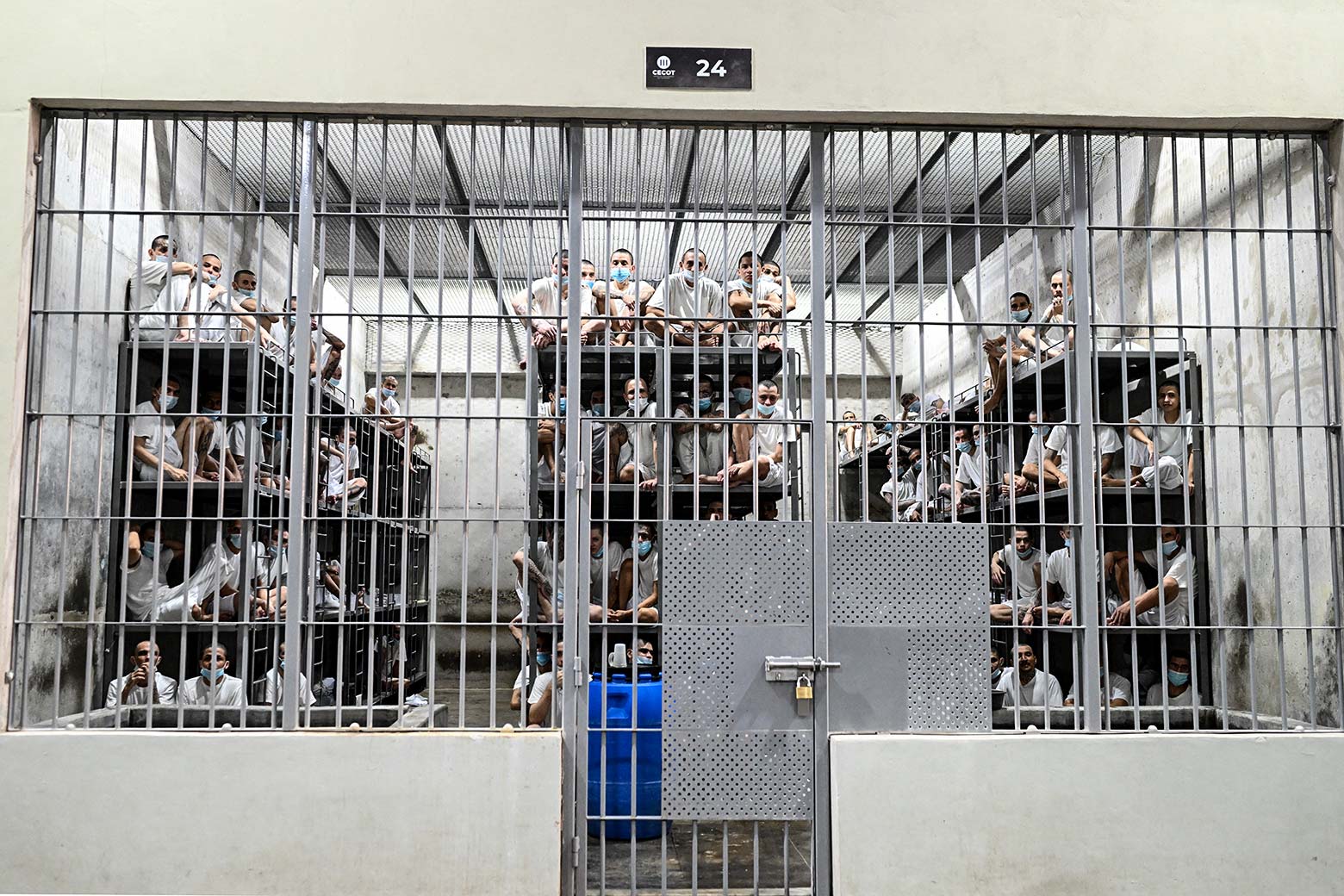A new book examines why Narendra Modi struggled for a big win in Varanasi in the 2024 elections

“Had my sister [Priyanka] contested the Varanasi seat, the prime minister would have been defeated by 2 to 3 lakh votes.”— Rahul Gandhi, 11 June 2024. If Congress had shown Courage and gambled by pitting Priyanka Gandhi against Narendra Modi to contest from Varanasi, who is to say what turn India would have taken after 4 June 2024. But Congress did not do that, and the Modi era continues. By the time Rahul Gandhi made this statement a week after the results were declared, Modi was ensconced in the saddle, though not so comfortably. Bharatiya Janata Party couldn’t manage a clear majority on its own, and while Modi was re-elected for a third term as the prime minister, his sheen was gone. The RSS chief Mohan Bhagwat seemed to be telling Modi to mend his ways when he said that a true sevak does not have “ahankara” (arrogance) and works without causing any hurt to others. Yes, the Congress did not show an iron will, but the people of Varanasi were ready to do the impossible. Ajai Rai, who was a lightweight candidate, lost by only 1.52 lakh votes. Instead of soaring to new heights, Modi’s victory margin shrunk. Bharatiya Janata Party had wanted Modi to win by more than ten lakh votes. As Manoj Bhadra wrote, “Having coined a new slogan ‘Abki baar, 10 lakh paar’, the BJP is leaving no stone unturned to meet its target by all means as a challenge. The attendant tension is no deterrent on the party’s efforts to increase the victory margin of Modi.” To create history in Varanasi, BJP put in tremendous efforts from the get go. A grand show was organised on the day of Modi’s nomination. “Around 16 national party presidents, three CMs, and four Union ministers including the Defence Minister were present at the time of the nomination.” But despite the tall claims and boasting of monstrous proportions, what was most surprising was that, when the prime minister proceeded to his meditation retreat at Vivekananda Rock Memorial in Kanyakumari after campaigning, Amit Shah, who is the second most powerful man in the government, stayed back to hold the fort in Varanasi along with many union ministers and heavyweight party office bearers. As Bhupendra Pandey reported, “The PM left the responsibility of supervising the election in Varanasi to Union Home Minister Amit Shah, his second-in-command who in the past couple of days held meetings with senior leaders, Union Ministers Piyush Goel [Goyal] and Giriraj Singh, and BJP national general secretary Sunil Bansal. The three, along with a team of key BJP and RSS functionaries, have been managing the party’s affairs in the runup to voting.” If Varanasi was truly going to be a cakewalk as the BJP had proclaimed publicly, then why was Shah deputed to lead the Modi Army in the city? Why was he gathering the party’s alliance partners too? As reported by Pandey, “Among the others who held a meeting with Shah were BJP ally and Suheldev Bhartiya Samaj Party (SBSP) chief Om Prakash Rajbhar and former Samajwadi Party (SP) leader Narad Rai, who joined the BJP on Tuesday. Sources in the BJP said Shah assigned tasks to his senior party colleagues, Rajbhar, and Rai who is from the Bhumihar community.” Clearly, Modi alone was not enough. The party tried to bring in workers from other states to mobilise people of their states. “In the past few days, the BJP has mobilised workers from different states and districts of Uttar Pradesh to help with the campaign. Party workers from Puducherry, Tamil Nadu, Telangana, Andhra Pradesh and Rajasthan are making rounds of areas where Tamils, Telugu people and people from Rajasthan live.” It is another matter that the local BJP office bearers were boastful. “Hum log kayde se campaign hi nahin kar rahe hain, koi fight hi nahi hai. Bas jeet ka margin badhana hai (We are not properly campaigning since there is no fight. The only task is to increase the victory margin).” But wouldn’t Amit Shah have visited other constituencies, helping the party win more seats, instead of being stuck in Varanasi, if it was only about the winning margin and not about victory itself? There is no denying that even the opposition had considered the holy city a lost fight. Congress had chosen Ajay Rai as its candidate from Varanasi not to defeat Modi but for mere tokenism. Rai was the state Congress party president who had contested against Modi in 2014 and 2019 as well. In both elections, he came in third, with 75,614 votes (7.34 per cent) in 2014 and 1,52,548 votes (14.38 per cent) in 2019. In 2024, his votes jumped to 4,60,457, with a vote share of 40.74 per cent. In 2014, there was no alliance between the opposition parties. In 2019, despite the SP–BSP alliance, the joint candidate Shalini Yadav could get only 1,95,159 votes, and lost the elections by 4,79,505 votes. In 2024, when SP entered into an alliance with Congress, which had managed to get only 2.33 per cent votes in the 2022 assembly elections, it was not thought of as a formidable alliance. But as elections marched past, the alliance in UP proved to be the nemesis for BJP, and in Varanasi, the opposition candidate Ajay Rai gave jitters to Modi on counting day. Rai got 4,60,457 votes, and lost only by 1,52,513 votes. Modi received 6,12,970 votes, 61,694 votes less than 2019. At a time when Modi’s victory in Varanasi was taken for granted, and the debate hinged on how much the margin would improve compared with 2019, very few reporters showed the courage to present the true picture of Varanasi. It seems reporters working with mainstream media either lacked awareness about the ground reality, had fallen to editorial cowardice or surrendered to ideological bias. A few good men held their fort and reported the truth – and the truth was that there was massive discontent with the prime minister. This feeling of dissatisfaction had its roots in the development initiatives that had ignored the very ethos of the city. According to mythology, Varanasi was established by Lord Shiva. Over the centuries, various people have contributed to the city’s unique character. The city belongs to Kabir, one of the greatest spiritual saints. It is also the city where Tulsidas wrote Ramcharitmanas, the story of Lord Ram. The city was also home to the mystic poet-saint Ravidas. The modernisation of the city had ignored all these aspects, and through the election results, the spiritual city seemed to have expressed displeasure at the attempts made to change its character. Varanasi is no ordinary city. In hindsight, it seems Varanasi was enraged about being taken for granted. It reacted the way it ought to have. One of the greatest holy cities in the world was out to teach a lesson. It was out to prove that if lesser mortals, out of sheer arrogance and delusion, discover divinity in themselves, then the law of the cosmos will prove how hollow and brittle those who proclaim to be invincible are. A week before polling day in Varanasi, senior journalist Anand Sahay hinted that Modi was no longer invincible in his own burrow, and that the road ahead for him was not going to be smooth and easy. He wrote, “If Varanasi weren’t the prime minister’s constituency in the Modi era, in which no tactics to win can be deemed underhand, an observer may well be led to think that there is a fight on. This owes to the sharply dropping graph of the leader of the government in New Delhi, not particularly to any stalwart nature of the challenge he faces from the Congress party’s Ajay Rai, although the Congress is in a firm alliance with UP’s influential Samajwadi Party which is holding up very well – a sharp contrast from the time of the UP state poll of 2017.” Sahay also wrote, “If you are in a big city, avidly read the papers and closely follow television news, the election campaign playing out in the countryside in Uttar Pradesh can be the bigger surprise. Varanasi in this state of large size and considerable diversity illustrates this perfectly.” No doubt, in the ten years since Modi became the member of parliament from Varanasi, projects to the cost of Rs 48,000 crore have been sanctioned and approximately Rs 41,000 crore has been spent. A lot of development work has taken place. Today, other than the Kashi Vishwanath Corridor, widened roads, clean ghats and a highway to the airports has given a new dimension to the city. The number of tourists has also tremendously increased in last few years. But these changes in the city’s landscape have made a section of the citizens unhappy. Their complaint is that the city’s unique identity has been altered. Banaras, after all, is not a commercial city; it breathes spirituality, and ancientness is its identity. But an attempt to bring modern amenities to the city has ruined its uniqueness. Excerpted with permission from Reclaiming Bharat: What Changed in 2024 and What Lies Ahead, Ashutosh, Westland.











![More and more people who fled authoritarian regimes to come to America are now wondering what the hell the point of doing that was [Sad]](https://usrimg-full.fark.net/a/af/fark_afVyLK6A76BY6ifRPIfYRuTMUPM.jpg?AWSAccessKeyId=JO3ELGV4BGLFW7Y3EZXN&Expires=1746417600&Signature=Lj0NwOnrBFQnzsPx5sy97yd6VQU%3D)

![So, the patriots Jet flew from Fort worth to Guantanamo Bay, and back to Ft. Bliss. But the Pats spokesperson says "it wasn't used for deportation." Doesn't sound like it was, pal [News]](https://usrimg-full.fark.net/Q/QE/fark_QEeQuhNt3wIPFcA5kXRo91Z_voo.jpg?AWSAccessKeyId=JO3ELGV4BGLFW7Y3EZXN&Expires=1746417600&Signature=H5TgfooDTpGBxs6bURAgTVWye0c%3D)



